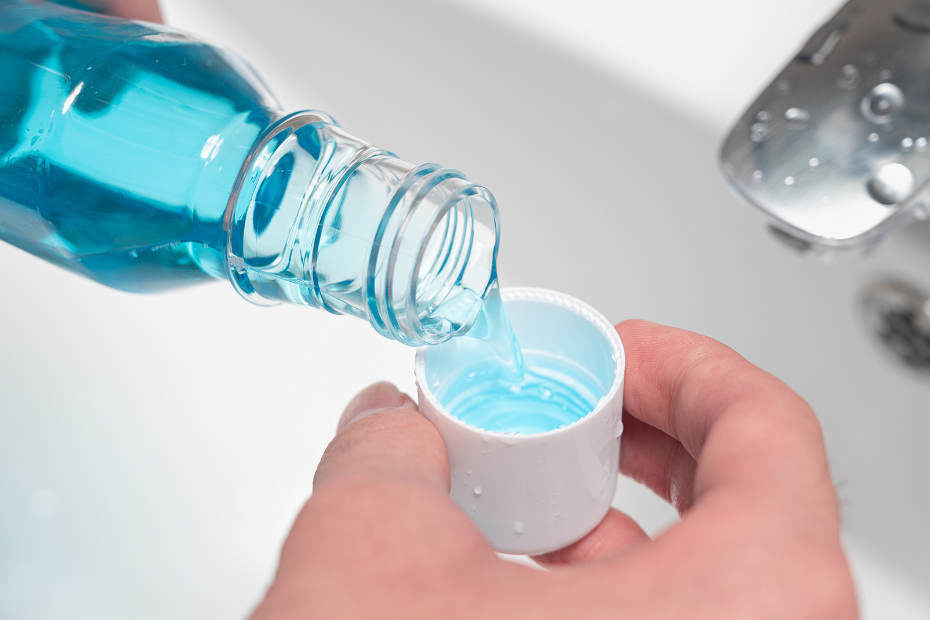Mouthwash Myths
We all know to brush twice a day and most of us do (we hope). The next important oral hygiene task in our daily routine is to use floss and interdental brushes between our teeth. Only after these two comes the use of mouthwash. In this blog you’ll learn about mouthwash myths and the types of mouthwash available.
Mouthwash can help with your cleaning routine, but you need to use it at the right time – and to ensure it doesn’t replace flossing or using interdental brushes. Mouthwashes do not remove plaque directly, and using them incorrectly could mean you’re wasting your money.
But Mouthwash Will Make My Teeth Whiter And Give Me Fresh Breath, Won’t It?
You may have seen mouthwash adverts that state they help to treat gum disease and help whiten your teeth.
Help is the key word here, as only a dentist can assess the teeth and gums to diagnose the issue and determine the appropriate treatment. The mouthwash alone will not do this. We may at times recommend mouthwash as part of a good oral hygiene routine, but as mentioned above – it is not a substitute for thorough plaque removal with a toothbrush and floss/interdental brushes.
Types Of Mouthwash
“Which one should I use?” This is a question we are asked a lot by patients. The label may claim to do different things but be sure to choose one that contains fluoride as this has been proven to help teeth remineralise and is also the key ingredient present in most toothpastes. Try also to choose an alcohol-free mouthwash.
Dentists may subscribe antibacterial mouthwashes such as Corsodyl that contain chlorhexidine for short term treatment of gum inflammation, also known as gingivitis. There are different concentrations available and using the stronger 0.2% variety for a prolonged time particularly straight after brushing can lead to teeth staining, and altered taste sensation.
Some patients due to certain conditions and medication can suffer from dry mouth. This means they have reduced saliva and are therefore at a higher risk of dental problems. Mouthwashes containing fluoride can help reduce this risk.
When To Use Mouthwash
If you wish to use mouthwash it is important to use mouthwash at the right time to make it as effective as possible for your teeth. Using it straight after brushing either in the morning or evening washes away the fluoride gained from toothpaste. The best time to use mouthwash is mid-morning or after meals and snacks during the day for maximum benefit.
Need Advice?
Ask your dentist or hygienist at your next appointment to recommend a mouthwash tailored specifically to your needs. Whether you have a dental query or it’s time for your routinel dental check-up, book your next appointment today!

